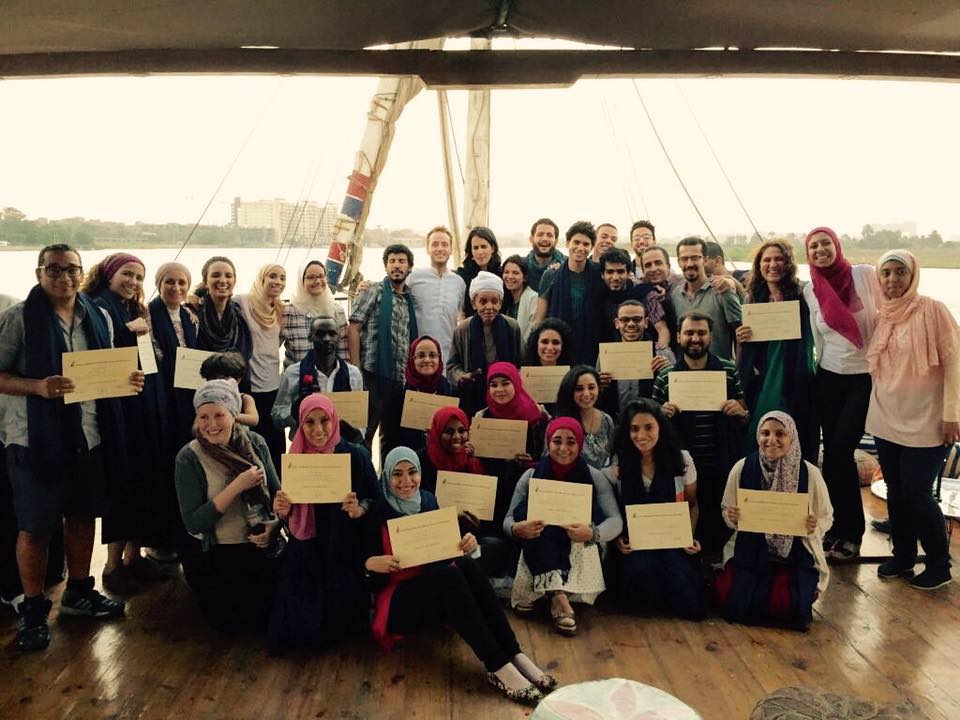Residential Fellows
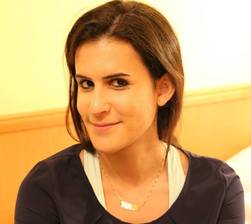
Doaa KADDAH is interested in the ‘mess’ of our social realities that are excessively pouring out of the imposed order of things and peoples. She holds two Masters degrees in Educational Psychology from the Ludwig Maximilian University of Munich and in Sociology-Anthropology from the American University in Cairo. She completed her thesis on the controversial mobility and presence of the tukuks in the old districts of Maadi in Cairo. She loves sweet potatoes, dark chocolates, bananas and the fruitfulness of random encounters. Doaa is the residential fellow for Social Sciences field of study at CILAS.
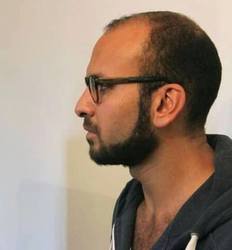
Mohammad SHAWKY HASSAN is a filmmaker living and working in Egypt. He studied philosophy, film directing and cinema studies at the American University in Cairo, The Academy of Cinematic Arts & Sciences and Columbia University. His films include It Was Related to Me (2011), On a Day like Today (2012) and And on a Different Note (2015), which premiered at the Berlinale Forum Expanded, and was acquired by the Museum of Modern Art (MoMA) in New York as part of its permanent collection. He was the film programs director at ArteEast, and the director of the Network of Arab Alternative Screens (NAAS) from 2011 till 2016. As a fellow at CILAS, Pam coordinates coursework in the field of study Arts and Philosophy.
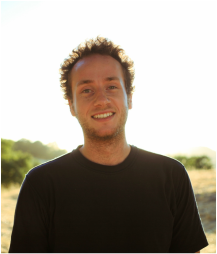
Karim-Yassin GOESSINGER studied political philosophy and urbanism in the Netherlands, Brazil and France. He worked with a range of development agencies in Latin America and the Middle East in fields including micro-finance, informal housing and local governance. In addition to a vested interest in social and political theory, Karim-Yassin is passionate about designing educational experiences. A Dalai Lama and Donella Meadows Fellow, he enjoys martial arts, languages, world music, cooking and tea. After his graduate studies at Sciences Po Paris, he founded the Cairo Institute of Liberal Arts and Sciences (CILAS). As a fellow at CILAS, he has coordinated the field of study Humanities.
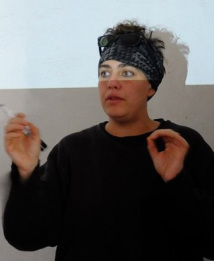
Pam LABIB completed graduate studies in environmental science at the Yale School of Forestry & Environmental Studies. Her mind has boggled with questions about who we are in relation to the world around us - questions that are contextualised in the worlds we imagine of birds, dolphins, coral reefs and sea turtles. Pam has employed both experiential and inquiry based methodologies in her teaching. At CILAS she will adopt phenomenological and relevance approach to education incorporating reflexive ethnographic approaches to uncover nuances of power relations when it comes to the worlds we inhabit and imagine. As a fellow at CILAS, Pam coordinates coursework in the field of study Natural Sciences.
Visiting Fellows
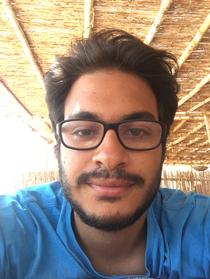
Nader OSAMA I received my MSc in Sociology (Contemporary Social Thought) in 2016 from the London School of Economics and Political Science (LSE), and a BA in Economics, with a minor in Anthropology, from the American University in Cairo (AUC) in 2015. I am interested in critical social and political thought, as well as political and historical sociology, with a regional focus on Egypt and the Middle East. For my MSc dissertation, I studied the social and political theories of transparency and secrecy through an engagement with the recent history of Egypt’s political economy, asking how secrecy is produced as a public effect and the limitations of neoliberal models of governance. This is part of a general interest in theories of expertise and neoliberal governmentality. I am also interested in questions around human rights, violence and social justice.
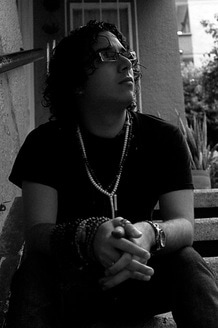
Fernando Revelo LA ROTTA is an aspiring academic originally from Bogota, Colombia. He obtained his BA from Duke University in Cultural Anthropology, Asian and Middle Eastern Studies (Arabic) and Women’s Studies in 2013. He recently acquired an MA in Gender and Women’s Studies from the American University in Cairo. His undergraduate conceptualized the sexualities of Egyptian men from the interweaving of institutions, religions, culture and histories that produce them. This project also sought to mobilize queer theory towards the East, specifically Cairo and the Middle East, to conceptualize how sexual subjectivities are created at the nexus of encounters between Western understandings of sexuality and traditional expressions and understandings of male same sex practices in the Middle East. His MA thesis continued the topics of his undergraduate thesis by exploring the relationship between selfies and their relationship to the production of subjectivity vis-à-vis Lacanian psychoanalysis and queer theory through a virtual ethnography of three mobile social media apps in Cairo: Instagram, Tinder and Grindr. In addition, Fernando works as a high school teacher at St. Andrew’s Refugee Services where he teaches high school English and leading an international college preparation initiative which hopes to provide the opportunity for migrant and refugee students in Cairo to apply to colleges and universities abroad. Fernando hopes to pursue a PhD in Cultural Anthropology in the coming years.
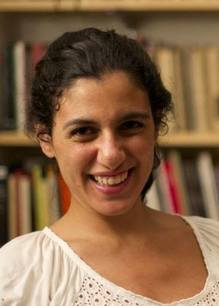
Rim NAGUIB has completed her PhD in Sociology at Northwestern University in the United States. Her dissertation compares interwar intelligentsia ideologies in Egypt and Iran, and explores the causes of their divergence, by focusing on the two countries' different processes of integration into the world economy. She appreciates Marxist political economy, class analysis and critical theory. Outside the academic world, she is an avid reader of comics, has translated with her husband two graphic novels, and wishes to write her own. She is also a dedicated sourdough bread maker.
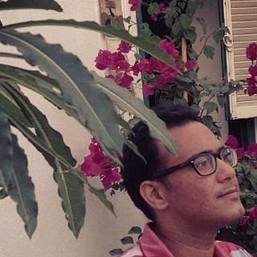
Ali Atef ABDELKADER is a doctoral candidate in anthropology at the University of Chicago currently researching the history of film in Egypt. His research interests are in film history, archives, visual anthropology, and movement and migration. He was previously a senior researcher at The American University in Cairo’s Social Research Centre, where he also taught anthropology of Arab societies in the university’s Anthropology unit at the Sociology, Anthropology, Pyschology, Egyptology department. He has an MA in socio-cultural anthropology from Columbia University (2010).
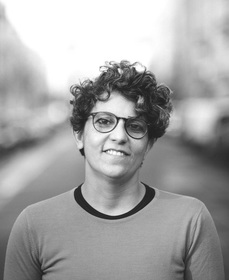
Louly SEIF is a filmmaker & a video editor born in 1976 in Alexandria & based in Cairo, Egypt. She studied Anthropology & Film at the American University in Cairo & the University of Massachusetts in Amherst. In 2011, she completed her MA degree in Aural and Visual Cultures at Goldsmiths College in London. After working in the human rights and development fields and with UNHCR in Tajikistan for few years, she began working in 2003 as an editor for commercial and independent feature films, documentaries and video art in both Dubai and Cairo. In 2006, she established a Cairo based post- production house, through which she edited a dozen of documentary films for Al Jazeera documentary channel with a strong emphasis on social, artistic and political issues in the Arab world as well as numerous independent films and video art projects. She directed two documentaries: Resurrection (Tajikistan, 2003) and 2 Femmes, 4 Chiens et 6 Jours (Belgium, 2007), as well as a short 16mm film Deuteronomy (Egypt, 2012). She is currently working on a long feature essay film funded by the Arab Fund for Arts and Culture (AFAC) in conjunction with editing fiction, documentary and art projects as well as providing training sessions on technical and theoretical aspects of non-linear montage and analogue filmmaking. In the last couple of months, she completed Up.Grade, Europe’s first 9 months postgraduate studies program for color grading at the German Film & Television Academy in Berlin (DFFB).
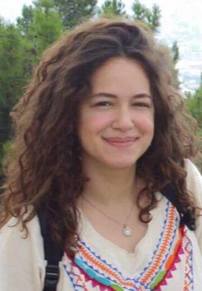
Nourhan TEWFIK is a culture journalist at Ahram Online, and an MA candidate in Arabic Literature at the department of Arab and Islamic Civilizations at the American University in Cairo (AUC). Upon graduating from AUC with a BA of Arts (major in Political Science) in 2013, Tewfik embarked on a career in cultural journalism, translation and research. As a journalist, Tewfik is interested in tracing how cultural productions speak back and to broader structures of power and renegotiate reality. She is equally interested in exploring how journalism—particularly cultural journalism--can play a role in interrupting, halting, and reversing problematic generalizations and violent processes. In her capacity as a journalist, she has freelanced for Al Ahram Weekly, Rowayat literary journal and the Beirut-based The Outpost magazine. Besides working as a journalist, Tewfik is also a freelance translator and researcher. She assisted with research at AUC’s Center for Migration and Refugee Studies (CMRS) and the Arab Council for the Social Sciences.
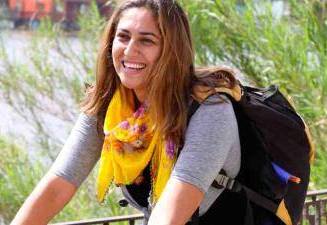
Sara EL SAYED - has a masters in Biomimicry from Arizona State University. She is co-founder of Nawaya a social enterprise working as a catalyst to transition small scale farmer communities into more sustainable ones through education and research. Sara is also co-founder of Dayma a LLC responsible for outdoor Environmental Education, teaching young adults about biomimicry and local Egyptian communities. She is an avid traveler and enjoys tasting foods, cooking and interacting with people through food experiences. She is also one of the part time teachers at the biomimicry institute. Sara is on the board of Slow Food, an international movement that started in Italy aiming to safeguard local food cultures and traditions and does so by promoting Good, Clean and Fair food for all.
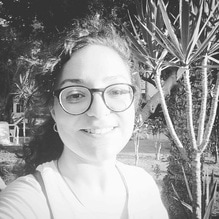
Radwa ETMAN Feeling fed up with a world that no longer fills my deep longings, I decided to quit the corporate world in order to connect with human sisters and brothers on a deeper level. I started my journey by learning the abdominal massage “Chi Nei Tsang” believing that we humans need to find a way to release ourselves from our minds and patterns in which we find a lot of comfort. Being exposed to the metaphysical world and the different alternative healing techniques allowed me to never judge a journey by how it looks like and thrive to more “seeing”.
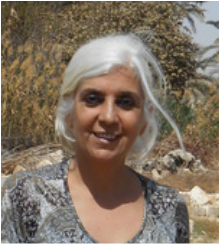
Hala BARAKAT has a Ph.D. in Paleoecology from the University of Aix-Marseille III, France. She worked as a lecturer at Cairo University 1995-2000 and acted as deputy director at the Center for Documentation of Cultural and Natural Heritage (CULTNAT) affiliated to the Library of Alexandria. She was in charge of the documentation of the natural heritage program as well as supervising the photographic heritage, folkloric heritage and musical heritage programs at CULTNAT (2000-2012). In January 2013, Hala joined the Egyptian Initiative for Personal Rights (EIPR) as a part time researcher on the issues of “Right to Food” and “Food Sovereignty” in Egypt. She is also a founding member and former president of Nature Conservation Egypt (NCE) a non profit organization active in the field of conservation of endangered species and habitats and raising awareness to environmental issues in Egypt. Hala is also a certified Sivananda Yoga teacher and master. As a trained botanist, she has long had deep interest and knowledge in Naturopathy, Homeopathy and vegetarianism which complement her interest in yoga as a lifestyle.
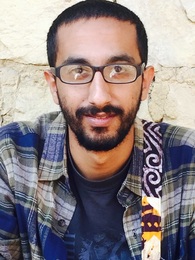
Omar EL-RAKHAWI is an AUC graduate in philosophy and a Leiden Master’s student in religious studies. In his Master’s thesis, which was titled “Religion and its Counter-Tendencies: A Reflection on the Question of Religion”, he discusses different approaches to the question of religion, especially criticising objective approaches, and particularly when these are suppressive to subjective considerations. In doing this, I relied on a comparative approach between figures and thinkers of different backgrounds, among them Kierkegaard, Derrida, and two Sufi figures who were equally singular in their own contexts, namely Ibn ‘Arabi and al-Niffari.
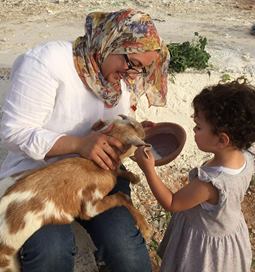
Manar HAZZAA obtained her Bachelor’s degree from Ain Shams University and Master’s degree in Anthropology from The American University in Cairo. Her thesis “Narratives and Evidence: Struggles over Mohamed Mahmoud” focuses on the construction of competing narratives of the events of November 2011. Following eighteen narratives, Manar analyzed the production of different stories by different participants. Her academic interest revolves around these themes: anthropological research methods, the digital effect and the notion of evidence, oral history, and event as an anthropological concept. She has a passion for learning and teaching and enjoys her time in a classroom.
In addition to her academic interests, Manar gives a helping hand in her family’s farm, working their way into a greener world. On her free time, she loves to play with her kids, enjoys cooking, listening to music, and watching old comedy plays.
In addition to her academic interests, Manar gives a helping hand in her family’s farm, working their way into a greener world. On her free time, she loves to play with her kids, enjoys cooking, listening to music, and watching old comedy plays.
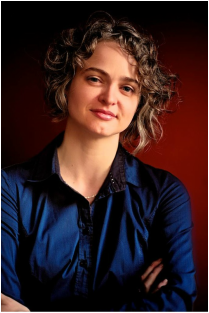
Jana HOLLÀ has always been intrigued by how and especially why we humans behave in the ways we do. Choosing Cultural Anthropology therefore seemed like the right way to go. At some point, however, the passive observation was not enough. In a search for more, she came across the field of cross-cultural communication during her MA studies. By the time she enrolled in the Anthropology PhD program at Charles University in Prague she was a strong believer in the application possibilities the cross-cultural tools offered on top of the theoretical anthropological basis. Her academic interests refocused on the issues of identity and belonging in relation to interactions with the (culturally foreign) Others. Her PhD dissertation thus ended up examining a group of young middle class Cairenes and how their daily interactions with their semi-international shilla influenced the ongoing construction of their personal identities. By this time, a year-long study stay in Cairo turned into a proper expatriation. Career-wise she moved away from academia and became a cross-cultural consultant, trainer and group facilitator working both with the profit and non-profit sectors. After well over a decade, Jana enjoys her expat life in Cairo, living what she preaches: embracing the challenges and opportunities living abroad offers with full awareness and deep appreciation.
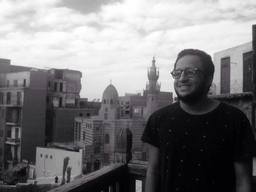
Ahmed MONGEY currently works at CILAS as the social sciences field coordinator. He assisted in 2 courses this year “Themes in the Social Sciences” and “Egyptian Nationalism 1919-Present”. He currently explores the utopian themes in the arts and the social sciences. Particularly embedding and exploring the utopian in the Egyptian context. He wants to look for the concept of Utopia for its critical and hopeful value. Mongey originally studied economics at Cairo University, worked for 3 years in development sector before he joining CILAS’ year-long program as a student then as one of its core team the year after. His current aspiration is to find the balance between his para-artistic practices and para-academic interests. He recently learned Juggling. He loves Indian food, drawing and ambient music.
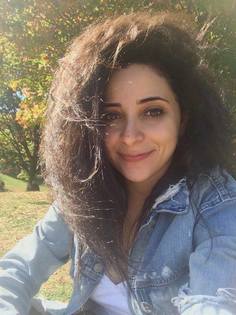
Sara ELKAMEL is a freelance journalist and writer born and raised in Cairo. After completing a Master of Arts in Journalism and Mass Communication (‘13) at the American University in Cairo’s School of Global Affairs and Public Policy, she relocated to New York, where she pursued a Master of Arts in Journalism (’15) at Columbia University’s Graduate School of Journalism. Also in New York, she was associate editor on The Huffington Post’s international team. Before then, she was reporting in Cairo — primarily on arts and culture — for local and international publications. Alongside her work in journalism, Elkamel has been pursuing her passion for poetry and creative writing; she has participated in various fiction and poetry workshops in Cairo and New York. Her writing has appeared in Ahram Online, The Guardian, The Huffington Post, GlobalPost, Guernica, Riwayya, and elsewhere.
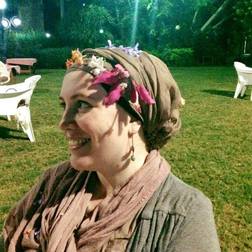
Rahma BAVELAAR moved from the Netherlands to Cairo in 2004 and is currently completing her PhD thesis in Anthropology at the University of Amsterdam. In her research she uses life-history interviews to explore discourses and practices around interfaith marriage in Egypt. Through the lens of these ‘private experiences’ she explores how church-state relations, developments in personal status legislation, feminist activism and the politics of religious identity impact and are impacted by intimate histories. She previously studied at SOAS and Northwestern where she worked on anti-colonial Sufi movements and poetry in the Horn of Africa.
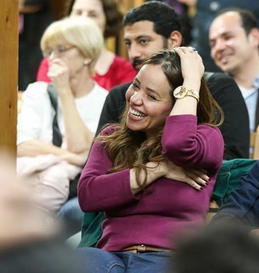
Riham AZIZ holds a Masters degree in Curricula Development. Her thesis was the first in Egypt to address Arts in education especially in teaching English as a Foreign Language. While developing her Ph.D. thesis on integrating technology in education, humanistic education and critical thinking, she worked as the Head of Professional Development at Educate Me. Riham changed her career path by working to work on educational projects in Egypt and outside (U.A. E- Qatar). As a Taurus woman from Upper Egypt, Riham is well known of her stubborn nature in achieving her goals. She is the first in her family to choose to travel by herself and to live four years as an independent woman and has published many articles in the Egyptian websites and newspapers. When asked what she wants to be in the future, she spontaneously answered: "I want to be a tree because I believe that now I have strong roots connecting me of who I am. I would call this "Mazzika" as I believe that everyone has his/ her own rhythm of gluing all their pieces in a way that makes them not only walk in life but DANCE!"
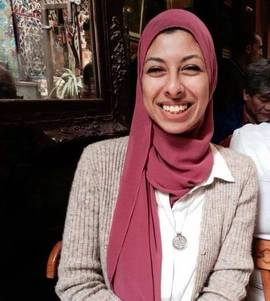
Alaa BADR is an MA candidate in Political theory at SciencesPo Paris University where she is researching Self-Criticism in Arab Political thought. She received her B.A. in Political Science with a regional focus on the Middle East from SciencesPo Paris, Menton Campus, in 2015. She spent a year at the School of Oriental and African Studies (SOAS) in London studying Islamic philosophy and Qur’anic translation. Throughout her studies, she has carried out different research projects including immigration in Berlin, Post-Communist space in Prague & Theatre scene in Athens. In this sense, she is a firm believer in the importance of intercultural understanding and in dialogue as a way of communication that’s why she helped co-found YAUMEA (Youth, Art & Unity in the MENA region); an association which promotes voices of the youth, often unheard, through a series of dialogues, research and art projects.
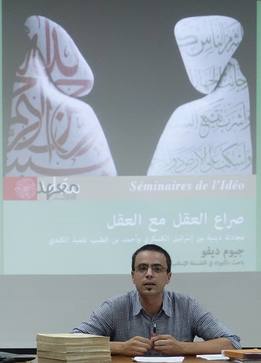
Guillaume DE VAULX has completed his PhD at Sorbonne University on Islamic philosophy (Rasâ’il ikhwân al-safâ – On Totality), he is now an associated scholar at SPHERE (a lab for history of sciences in Paris VII-University) and he works with IDEO (Dominican Institute for Oriental Studies in Cairo). Guillaume has been teaching philosophy for more than ten years in secondary schools in both Alexandria and Cairo. He is modestly trying to be an urban farmer.
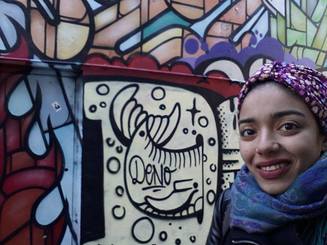
Mayada MADBOULY is a PhD candidate in Labex « Les passés dans le présent » at the ISP at Université Paris Ouest Nanterre la Défense in France. She is interested in migration, social movements, collective memory and collective action led by ethnic minorities in urban spaces. Her master degree was in Comparative Political Sociology at the same university where she submitted a thesis on Nubian youthful identity: "Les Nubiens du Caire au carrefour de l'identité : une (en)quête de la nubianité et reformulation de l'égyptianité". She obtained her BA from the department of political science in the faculty of economic and political sciences, Cairo University where she submitted a thesis on how Egyptian movies constructed a social image about slums inhabitants in Egypt.
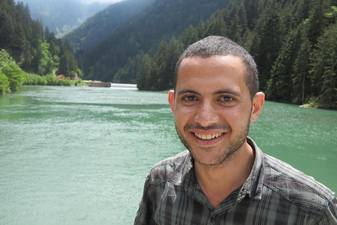
محمد يحيي خريج كلية الصيدلة جامعة قناة السويس. بعد التخرج حصل علي زمالة لازورد من مركز جيرهات للعطاء المجتمعي فى الجامعة الأمريكية. شغفه الرئيسي هو التاريخ اﻹجتماعي وبالتحديد تاريخ التابع. باﻹضافة إلي الدراسات النقدية فى المجتمع المدنى. عمل مساعد زميل فى معهد القاهرة اﻵداب والعلوم الحرة وباحث مساعد في مبادرة احكي يا تاريخ.
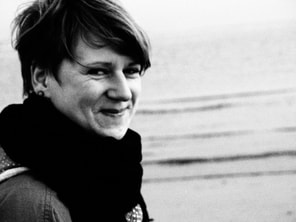
Sandra FRUEBING studied Product Design at the Royal College of Art in London where she graduated in 2013. She worked with a range of different design studios in London and throughout Europe before she moved to Cairo to teach in the product design foundation course at the German University. Besides her teaching commitment Sandra participates in a range of extra curriculum activities. She takes part in international residencies and works locally on community projects. In her own practice she explores themes as falling, walking, utopias and considers society and culture as a product of their circumstances.

